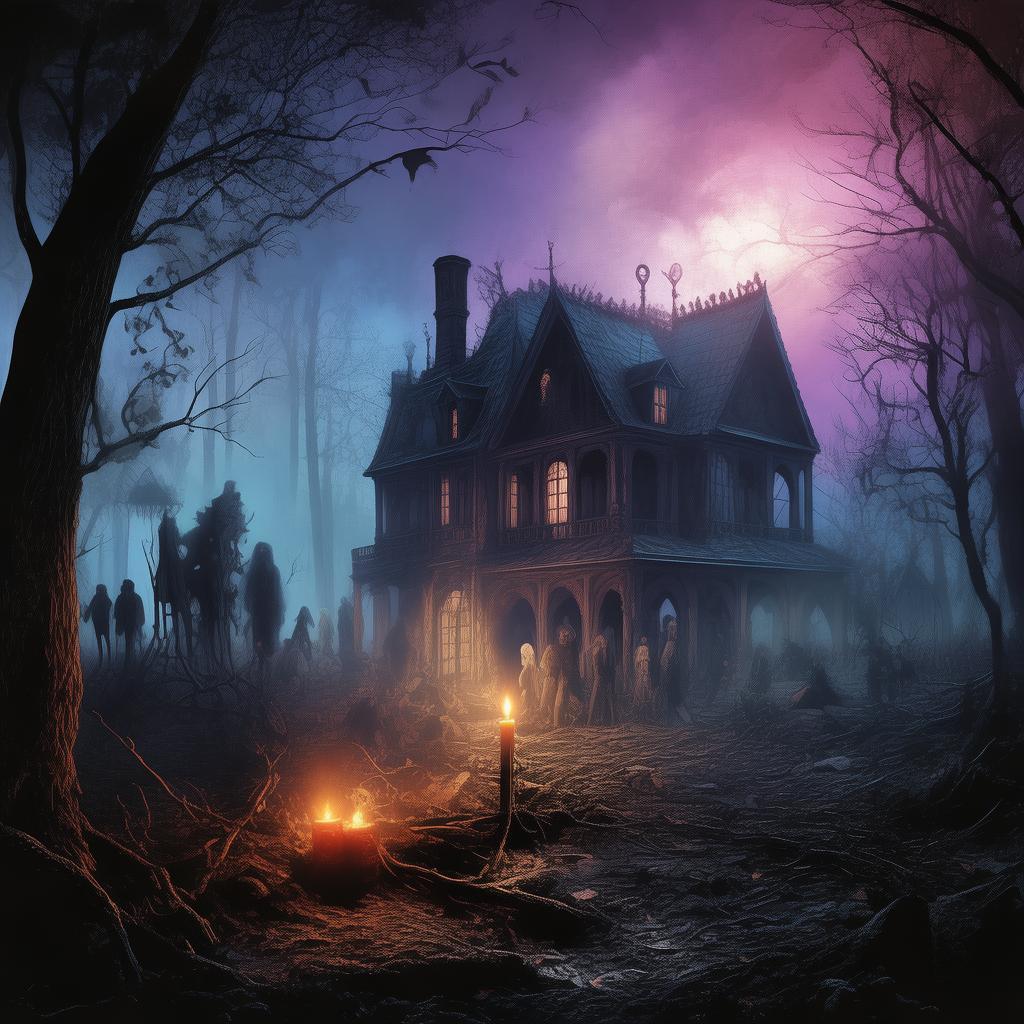The Haunting Melody of the Forgotten Opera House
The rain poured down in sheets, a relentless symphony that seemed to echo the sorrow of the forgotten opera house. The old building stood at the edge of town, its once majestic facade now overgrown with ivy and its once vibrant windows now dark and empty. It was said that the opera house was haunted, a place where the dead lingered, their spirits trapped by the melodies that once filled its halls.
Amelia had always been drawn to the opera house. As a young musician, she found solace in its abandoned grandeur, her violin a silent companion to the echoes of the past. One rainy evening, as she wandered through the dilapidated building, she stumbled upon a hidden staircase leading to the attic.
The attic was a labyrinth of forgotten memories, with old costumes, props, and sheet music scattered about. As Amelia sifted through the relics, she found a dusty old journal. It was filled with entries from a long-lost opera singer, who had performed in the house before it fell into disrepair. The journal spoke of love, loss, and a haunting melody that had been the singer's last act of devotion.

Intrigued, Amelia began to read the journal, which detailed a tragic love story. The singer, Eliza, had been in love with a wealthy patron, but their love was forbidden. On the night of her final performance, Eliza performed a haunting melody that was said to have the power to bring the dead back to life. She intended to use it to reunite with her beloved, but the melody had a price: it would cost her own life.
As Amelia read on, she realized that the melody was still trapped within the opera house, waiting to be performed. She felt a strange connection to Eliza and her story, as if she were meant to be the one to release the haunting melody.
Determined to uncover the truth, Amelia began to practice the melody on her violin. As she played, the air grew thick with emotion, and she felt a strange presence watching her. The melodies seemed to have a life of their own, weaving through the attic and into the rest of the building.
One night, as Amelia played the melody in the main hall, the entire building seemed to come alive. The lights flickered, and the old stage curtains swayed as if being pulled by invisible hands. Amelia felt a chill run down her spine, but she continued to play, driven by a sense of duty to Eliza.
As the melody reached its climax, Amelia felt a surge of energy. She looked up to see the image of Eliza standing on the stage, her eyes filled with gratitude. The melody had worked, and Eliza's spirit had been freed.
Suddenly, the room was filled with a bright light, and Amelia found herself on the ground, the melody having taken its toll on her. She opened her eyes to see Eliza's ghost standing over her, her face serene.
"Thank you, Amelia," Eliza whispered. "Your music has set me free."
Before Amelia could respond, Eliza's spirit faded away, leaving her alone in the silent opera house. She stood up, her heart pounding, and looked around. The building seemed different now, less haunted, more peaceful.
As she left the opera house, the rain had stopped, and the sky was clear. Amelia felt a sense of closure, knowing that she had helped Eliza find peace. She looked back at the old building, its once dark windows now filled with the light of the setting sun.
The Haunting Melody of the Forgotten Opera House had brought her face-to-face with the past, and she had found a piece of herself in the process. The opera house, once a place of sorrow, had become a place of healing, and Amelia knew that she would always carry the memory of Eliza and her haunting melody with her.
✨ Original Statement ✨
All articles published on this website (including but not limited to text, images, videos, and other content) are original or authorized for reposting and are protected by relevant laws. Without the explicit written permission of this website, no individual or organization may copy, modify, repost, or use the content for commercial purposes.
If you need to quote or cooperate, please contact this site for authorization. We reserve the right to pursue legal responsibility for any unauthorized use.
Hereby declared.









